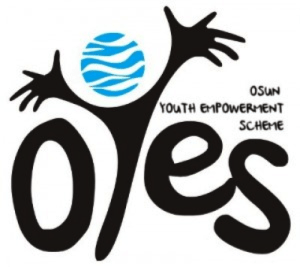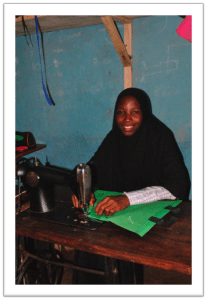Private individuals in Lagos have been capitalising on government’s failure to provide link bridges and good roads for its people and this has gone on from generation to generation.
For over 40 years, such investors have constructed wooden bridges, popularly called pako bridges, across the state and tolled users in return. The rush by investors to go into the business has, however, reached an unprecedented level in recent years.
In places where the toll bridges exist, pedestrians are tolled N30 each, while motorists pay N200 per vehicle. Besides, each occupant of the vehicle aside from the driver, is also required to pay N30. Meanwhile, the feeling has been mixed for users and residents that benefit from the linkages provided by such bridges.
While most users cringe at the weight of the tolls imposed by the investors, nevertheless, they identified with the important roles played by the toll bridges in connecting communities and opening up new areas. Many of the bridges are constructed over swamps, where only brave residents dared trudge across prior to the construction of the bridges.
So, in spite of the heavy tolls on the communities, some of which are poor, residents have resigned to fate, particularly with the government not showing interest in their situation.
Some examples of the toll bridges are found in Alimosho Local Government Area, linking Ashipa, Ayobo-Ipaja community to Igando community; Lanre through Sanni Thomas Street to Igando New town; Igesu and Egan communities; Baruwa inside community and Diamond Estate; Obadore and Ijagemo communities; Abegunrin and Idowu-Egba; and Pako community to Ketu community.
A visit to some of the bridges showed a similar mode of construction but varying physical conditions and modes of operation. Each bridge also posed its own peculiarity based on the environment it is sited.
The bridges at Ashipa-Igando and Lanre through Sanni Thomas Street to Igando New Town were estimated at around 300 metres each, while the Igesu-Egan bridge was estimated to be around 540 metres.
A small neighbourhood market had formed at the foot of the Ashipa end of the toll footbridge connecting the community to Igando. Residents descending the bridge into their community or transiting beyond Ashipa could get groceries, pepper, vegetables, and other items like footwear. Commercial motorcylists have also turned the feet of the bridge into major parks.
A resident of Ashipa, Mr. Lukman Mudasiru, said the bridge was constructed some 20 years ago.
“But before then, we used to tread the water or practically swim to cross over to the other side, even though, it was deep. Only the brave could try it then. Many people would pull off their clothes and put them on their heads to prevent them from getting wet,” he said.
Mudasiru said the other option was to spend a much longer time to reach a community just across the swamp, adding that the infamous bad roads in the area has continued to give the bridge relevance. According to him, the bridge also serves people coming from or going as far as Ogun State from Lagos.
He said, “The bridge has opened up this area and aided development. The route is shorter for people working in Ikeja or even Lagos Island and living in far distances like Ejigbo, Olorunisola and Ishefun. Instead of spending hours going through Ayobo-Ipaja, which has very bad roads, they come through here.
“Even people living in places as far as Ota, Aiyetoro and Lafenwa in Ogun State or returning there after work pass through here. The only problem is that it’s a pedestrian bridge; we need one that will accommodate cars.”
Human traffic is often busy on the bridge, especially during peak hours. A number of beggars, also attracted by the number of users, sit on the bridge to solicit help.
The bridge is open between 4 and 12am everyday and has a gatehouse, where users pay tolls. It is understood that the bridge ought to open officially between 5am and 11.30pm, but for the pressure of users who wake up early to beat the morning traffic. So, electric bulbs supported by wooden stands and cables run the length of the bridge to provide light when it is dark.
“The bridge is always busy and there is a generator which is used to power the bulbs, so we see one another at night,” added Mudasiru.
But not everyone shared Mudasiru’s enthusiasm for the bridge.
Another resident, Alani Ogunlade, said the situation could get tricky for someone who could not afford the toll.
He said, “It’s not every time that people have money to pass, so sometimes, it can cause a serious issue. Some could decide to stay at home while some would want to force their way through.”
The traditional ruler of Ashipa, Baale Ayemojuba of Ashipaland, Chief Mudasiru Amusa, was even less enthusiastic about having a toll bridge within his community. He said the community had laid planks on the swamp before the bridge construction, but, however, admitted the overwhelming volume of the water, particularly during rainy seasons.
Amusa said he often suffers “heartaches” seeing his people being tolled on the way to and from their community.
He said, “It saddens me every time to see my people suffer like that, having to pay each time they leave the community or come in, but there is nothing I can do. I pity people who have to pay N60 to leave their home and come back and even spend more when they need to go out more than once.
“What we want is for the government to come in and build a concrete bridge for us so that people can enjoy the service without being ripped off. The queue in the morning on the bridge is massive. Many of such bridges are springing up in Lagos now. Many people are going into the business because of the huge profit in it. All the people working there (at the bridge) have grown big tummies.”
The bridges are either directly managed or contracted out to someone under an agreement to remit a certain amount daily to the investor.
It was learnt that Ashipa toll bridge was contracted out and investigation showed that about N250,000 is being remitted daily by the managers to the investor.
“About three years ago, it was N180,000 that was being remitted daily but today, it’s around N250,000. The police also come on Fridays to get their share from the managers,” a source close to the managers of the bridge, said.
However, the workers at the bridge declined to comment, insisting that the manager was not around.
Normally, the operation of the pako toll bridges involves identifying the communities in need of a linkage, usually separated by water or swamp, buying the land from the land speculators (omo onile) and putting the construction in place. Then the bridges have to be periodically maintained to prevent any mishap.
Investigation showed that one of the major wooden materials needed in large quantities for the bridge construction are the 4 by 2 hardwood and the 4 by 12 ft plank, locally called ‘Eki’ wood. It is said to be the best under the circumstance because it grows in water.
There have been reported cases of disputes over control and ownership of some of the bridges, particularly when the investor has to deal with more than one family (omo onile) in the process of buying the land or when too many people are involved in its operation.
A classical case is the multi-use wooden transit bridge at Lanre, which could accommodate automobiles. Some parts of the bridge appeared to be badly depressed, giving motorists undulating rides.
Investigation showed that the bridge was being managed by Mr. Oladipo Omojolowo, but that there was a dispute over its ownership and control, which were said to be in court.
The Chairman, United Ifesowapo Community Development Area and aggregate Chairman of Igando New Town CDAs, Mr. Sanni Thomas, said the dispute was responsible for the poor maintenance of the bridge.
He said, “The person managing the bridge now doesn’t want to fix the bridge since the case is in court and no one knows what the outcome will be.”
Thomas added that the idea of putting the bridge had sounded noble to community members, but that eight years on, the community had experienced more pains than gains.
He said, “Ordinarily, it could have been a very good business and it could have helped the community. Initially, what they (investors) told the community was that they wanted to link the road so that our children could go to school on the other side. So, the initial impression was that it would benefit the community but we’re not benefiting from it. The bridge brings a lot of traffic to the community that sometimes, we can’t even get into our own houses.
“The traffic damages our road quickly and it’s the CDA that’s taking care of the road without any support from the people collecting tolls from the bridge. It’s the same community that’s paying the security men patrolling the area and overseeing the bridge as well. It’s wrong that they toll the people and make so much from the community, and yet, can’t assist with grading the roads in the community. And the development and markets we thought it would bring did not happen; people don’t stop here, they go straight to Lanre. Same for the commercial motorcyclists.”
Also, Thomas said that vehicles sometimes fall off the bridge inside the swamp, spending days before they are removed.
Another resident on Sanni Thomas Street leading to the bridge, David Adigun, called on the government to “come to the aid of the community and construct a proper bridge.”
Enforcement seemed to be harder on the multi-use pako bridges since the attendants have to deal with pedestrians, motorists, motorcyclists and tricycle riders.
It was observed that to enforce payment of tolls, particularly from motorists and motorcyclists, attendants often had to close the gate to stop stubborn vehicle owners from passing through.
A mild drama ensued when a woman who identified herself as Alhaja Rasida, refused to pay for her children, none of who was older than seven years old. She insisted that she would not pay “a kobo” more than the N260 she was willing to pay for herself and two adults in the vehicle.
She later told Saturday PUNCH after about five minutes of having a tussle with the attendants, which she won. “How could they say they would collect N90 on these little children too? It’s N200 for a vehicle and N30 for each occupant apart from the driver, but I’d never agree to pay an additional N90 on these little children. The money is too much; it’s killing us. What kind of rubbish is that? Who gave them the rubbish permission to stand here and collect money?”
A source in the community said the bridge generates about N400,000 daily.
However, a lady at the office of Omojolowo, which was in the neighbourhood, said her boss was “not in town at the moment.”
Many owners and managers of the toll bridges live big in their communities. For instance, residents said Omojolowo’s house and office, which sit opposite each other on Oladipo Omojolowo Street, Igando New Town, easily dwarf other buildings on the street.
Residents, meanwhile, said Omojolowo’s fortune changed about seven years ago when he got into the business.
A resident who did not want to be named, said, “He used to work as a caretaker and later started selling palm-wine. His house was even draped in polythene bags. But things looked up for him when he linked up with others to start the tolling business.”
Meanwhile, a new multi-use pako toll bridge had just opened at Igesu, linking the community to Egan. A source in the area said the owner had invested about N33m in the project.
The bridge was new, so it was firmer and looked much neater, with modern lights to aid visibility for motorists at night.
A resident, Akeem Olawale, said going to Sango, Ogun State, from Egan would not take more than one hour using the bridge, while the other known alternative would not take less than two hours, if the traffic is light.
He said, “The bridge assists us to beat traffic. The road around here is very bad, so if you’re not taking the bridge to Sango, for instance, it will mean going round from Egan through Iyana-Ipaja and that could take close to more than two hours if there is no traffic.”
Efforts to reach the Chairman of Alimosho Local Government Area, in which many of the bridges fall, Mr. Israel Adekunle, were unsuccessful.
He did not answer his phone nor respond to a text message sent to his mobile line.
The State Commissioner for Works and Infrastructure, Dr. Obafemi Hamzat, however, told our correspondent that private initiatives were an important part of the environment.
He said, “Private initiatives are always necessary in all human endeavours in all societies. That is why there are private hospitals, schools and all others. As long as there are options, private initiatives will always be available.
“Remember, the state is adding to her infrastructure portfolio regularly. Can the deficit be eliminated in a year? No. So we have to keep attacking, which is exactly what the state is doing.”
The tale of toll bridges and roads in Lagos already appears to be twofold. While the wooden bridges on one side, service a section of the state that is largely dominated by modest dwellings, the tolled Lekki-Ikoyi suspension bridge and the Lekki-Epe Expressway are servicing another section believed to be living in more affluence.
For instance, the Lekki-Ikoyi link bridge which opened to the public in May 2013, did so amid controversies. Motorists are required to pay N250 toll on each car to use the suspension bridge, which the state government said it had handed over to a concessionaire. The proposal to toll the bridge had generated a prolonged debate by the state lawmakers at a plenary session, but the state government went ahead to open the bridge nonetheless.
Earlier, the controversial tolling on the 49.36km Lekki-Epe Expressway was also stiffly rejected by residents when the first of the toll gates was introduced at the Lekki Admiralty Way area in 2011. The state government claimed that the tolling was necessary because the reconstruction of the road was done under a concession deal with a private company. The controversial agreement signed between the parties was worth N50bn, with motorists paying N120 and N150 as toll on each car and SUV, respectively.
However, the state government recently said it had bought back the deal from the Lekki Concession Company Limited ahead of the 30-year period stipulated in the design, build, operate and transfer concession agreement.
Source: Punch News


















